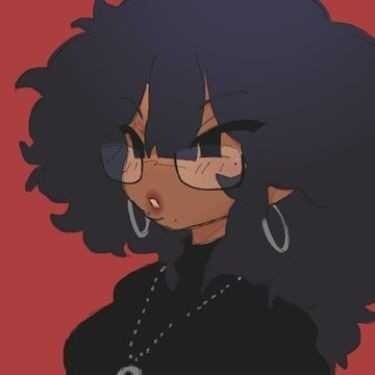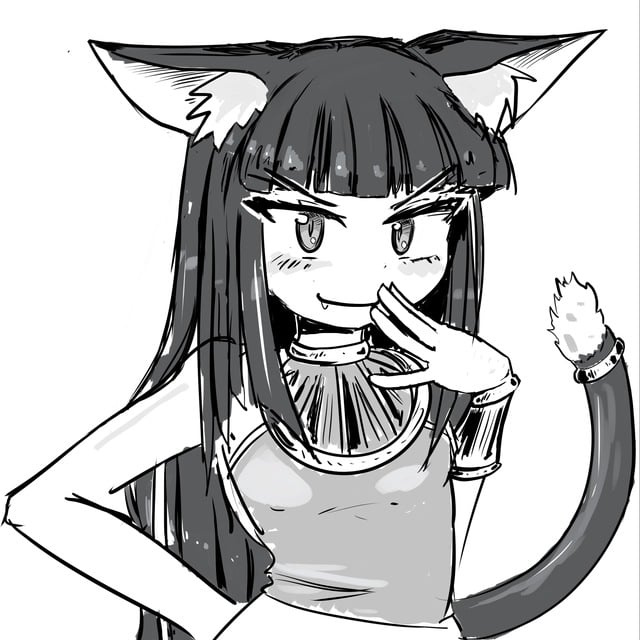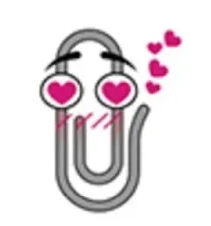One Woman in the Justice League
Just one woman, maybe two, in a team or group of men.
Also watch Jimmy Kimmel’s "Muscle Man’ superhero skit - “I’m the girly one”
The Avengers:
In Marvel Comics:
“Labeled “Earth’s Mightiest Heroes,” the original Avengers consisted of Iron Man, Ant-Man, Hulk, Thor and the Wasp. Captain America was discovered trapped in ice in The Avengers issue #4, and joined the group after they revived him.”
5 / 6 original members are male. Only one is female.
Modern films (MCU):
The original 6 Avengers were Iron Man, Captain America, Thor, Hulk, Hawkeye, and Black Widow.
Again, 5 / 6 original members are male. Only one is female.
Justice League
In DC comics:
“The Justice League originally consisted of Superman, Batman, Wonder Woman, Flash, Green Lantern, Martian Manhunter, and Aquaman”
6 / 7 original members are male. Only one is female.
In modern films (DCEU):
The members were/are Superman, Batman, Wonder Woman, Aquaman, Flash, Cyborg. (+ introducing Martian Manhunter (in Zack Snyder’s Justice League director’s cut))
5 / 6 main members in both versions of the Justice League film are male, with appearances by a 7th member in the director’s cut who is also male. Only one member is female.
The Umbrella Academy (comics and show)
7 members:
- Luther (Number One / Spaceboy)
- Diego (Number Two / The Kraken)
- Allison (Number Three / The Rumor)
- Klaus (Number Four / The Séance)
- Five (Number Five / The Boy)
- Ben (Number Six / The Horror)
- Vanya (Number Seven / The White Violin) Later becomes known as Viktor and nonbinary in the television adaptation after Elliot Page’s transition but that’s not really relevant to this.
Here, 5 / 7 original members are male. Only two are female. Only slightly better than the other more famous superhero teams, and they had to add another member (compared to Avengers’ 6 members) to improve the ratio (maybe executives still demanded to have 5 males).
Now let’s look at some sitcoms and other stories.
It’s Always Sunny in Philadelphia:
4 males, and 1 female slightly less prominent character who is abused constantly. The show claims to be politically aware and satirical but gets away with a lot of misogynistic comedy, tbh, that I’m willing to bet a lot of people are finding funny for the wrong reasons.
Community:
Jeff, Britta, Abed, Troy, Annie, Pierce, Shirley. This one is a little better, 3/7 are female. Notice it’s always more males though, they never let it become more than 50% female, or else then it’s a “chick flick” or a “female team up” or “gender flipped” story. And of course the main character, and the leading few characters, are almost always male or mostly male.
Stranger Things:
Main original group of kids consisted of: Mike, Will, Dustin, Lucas, and El (Eleven). 1 original female member, who is comparable to an alien and even plays the role of E.T. in direct homage. When they added Max, I saw people complaining that although they liked her, there should be only one female member. 🤦
Why is it ‘iconic’ to have only one female in a group of males? Does that just mean it’s the tradition, the way it’s always been? Can’t we change that? Is it so that all the men can have a chance with the one girl, or so the males can always dominate the discussion with their use of force and manliness? Or so that whenever the team saves the day, it’s mostly a bunch of men doing it, but with ‘a little help’ from a female/a few females (at most), too!
It’s so fucked up and disgusting to me I’ve realised. And men don’t seem to care. I’m a male and this is really disturbing to me now that I’ve woken up to it. How do women feel about this? Am I overreacting?
Because we want the story, not the gender stuff.
Sometimes gender makes no difference. But sometimes the author wants to make a point about gender. I have zero interest in points about gender.
Why is it gender stuff when it’s women but not men? Men and their gender is apart of their movies too, you just may not see it, like how a fish doesn’t see water. Take how a film is shot, how women and men are framed. You may not notice the camera assuming a het-male’s perspective by “eyeing” women a certain way because “that’s just house films are shot.” You may not go into a horror movie with the silent prayer that the male lead doesn’t get raped because that can just be thrown in there. You may not notice if every woman looks a certain way, and how no matter how old the actor gets, the female lead is still 25. Even in movies where it doesn’t even matter. You make not notice when a woman only gets to speak to and about men. You may not notice that one woman is usually tossed in to represent the entire female demographic because “they’re not the focus.”
But all those little details add up. Women have had men’s gender and their ideas and values soak into almost every part of society, even to how they value themselves. Men are not the default, and that means that they will have to go into some media knowing that they are not the main target and be okay with that.
If that were true, there wouldn’t be so much noise whenever an action movie with a female lead is released.
Once female speaking time reaches 30% or more, males believe that the females are dominating the speaking time.
Female encroachment on what has traditionally been considered male spaces is not taken well. Female empowerment is considered taking from deserving males.
Essentially the general male population don’t like females, and only tolerate them as a subservient subclass who should be seen and not heard.
Essentially the general male population don’t like females, and only tolerate them as a subservient subclass who should be seen and not heard.
This is a WILD claim to make.
It’s a wild world.
Yes, but not like that
This is one reason why shows like Ms Marvel and She Hulk tanked so bad.
Female encroachment on what has traditionally been considered male spaces is not taken well. Female empowerment is considered taking from deserving males.
The problem is that in the context of a “winner-take-all” society it does do that though.
Obviously the general solution is to make a society that is overall more equitable between those who succeed & those who don’t.
But if you aren’t going to do that then you will get a reaction from those who are losing ground, even if that happening is the morally progressive outcome.
Me, a male reading mostly manhwa of the romance fantasy genre where 99% of it have female protagonists: yeah, this is not talking about me. This kind of discussions are more about creating conflict rather than understanding. If people have time to start fights about the sex of the characters they have no interest in the story itself. Statistics on who is drawn more are kinda useless…
/me re-watching bocchi the Rock for the millionth time “You know, I never noticed before but there’s a distinct lack of Males here”
Because the majority of dudes complaining are incel man babies who need to feel like they are the focus of society. If its not exactly how they like it its not right. Its time we start shouting down on them loudly.
And if you dare question their masculinity by suggesting a woman might be able to do something other than be eye candy then they’ll… well I don’t know what they’ll do. Probably just complain about it on social media.
I found they usually huff until nearly shitting themselves before schoffing once more.
Sometimes, they’ll start a podcast or a YouTube channel. Those ones are the worst.
They become president and burn the country down
I have no idea, but I think this video is on to something.
Please give at least some clue before I give Google more clicks.
It’s a humorous poem done with beat poetry (I think I don’t know much about poetry)using African instruments discussing gender identity and sexuality. It’s worth the click and doesn’t take long.
Thanks.
No problem
Please remove the
&pp=ygU...tracking parameter from your link.Ok
ty!
No problem, I’m just so doxed already that I kinda forget that the whole internet was made to spy on people.
Because when the norm to these people is media that exclusively panders to them, even one single piece of media that doesn’t represent them is a zero-to-100 change. Going from even 0 to 1 piece of inclusive media is startling, new, and scary to them, because they’re simply not used to it.
It’s the root of the entire conservative mentality (which is why you’ll primarily see conservative men talking about this) since all conservatism is based in a desire for things to remain the same. Change is just scary to these people, no matter how benign the change may be.
Using males to mean men is as weird as men who says females when they mean women.
Why when a lot of those males aren’t men, they’re boys.
Yes, we get that, but I think they mean that when incels call women “females” it’s cringe as hell, because we know it’s coming from a place where they don’t think of women in a healthy way, so this comes off as stooping to their level
Yeah I’m aware of the problems with saying “men and females” but I thought the issue was more about a double standard of using different terms for different genders… If we say “males and females” and use the equivalent terms for both, is there a problem with this? Because it’s not treating them differently so I don’t really understand
Honestly, ask a few woman how they feel about the usage and go by what they say. A bunch of men/boys discussing this have no skin in that game.
I think, as with many things, it is about context. When doing a scientific reproductive study about “rats - 5 male, 5 female” it makes sense to use biological descriptors, and when paramedics do it in a biological emergency, etc. A good way to understand it is via other similar trajectories, like racism. Would you consider it reasonable to refer to a “white man” while referring to another “man who’s a black”? For example only a few decades ago you might have heard a cop in the US (or South Africa, in Afrikaans) say e.g: “I saw 5 men leave, and 2 of them were blacks” vs what you would (hope to) hear now: “I saw 3 white men and 2 black men leave”. Look at those 2 sentences substituting “white, black” -> “male, female” and “men” -> “people”, and that should highlight the point (in a slightly grammatically clunky way though because I don’t have time to come up with a more elegant example).
In your examples, I would definitely think we shouldn’t use differential/non-equivalent language between different groups of people/members of society, including races or genders. So that includes not saying “white man” and “man who’s a black” -> I would think this should probably be “white man” and “black man” or “man who’s white” and “man who’s black”. I think being consistent with our language used to refer to people is important to not promote or uphold discrimination. There could be other problems even if it’s consistent, I’m not denying that, but I think lack of consistency of treatment (linguistic or otherwise) is a key issue. I believe in the Sapir-Whorf hypothesis of linguistic relativity to a degree, that language shapes/influences how we view the world & informs a lot of actions & behaviors in society. So linguistic discrimination is a real thing that can lead to or perpetuate more overt (physical/social) forms of discrimination. For the same reason, it should be consistent between genders (and as a side note, I don’t view male and female to be strictly biological terms to refer to biological sex, but rather that they can be used for gender identity too, as in MtF / FtM [male to female or female to male], which other sociology institutions seem to agree with as well, in case you thought I was being a “sex absolutist” or transphobic).
The case of using “male and female” for rats in an experiment is interesting because to me it represents a double standard where we are okay with using those more kind of basic fundamental terms for non-human animals, even if we’re not okay with using them for humans (and it’s not like we have terms like men and women for other animals, so it’s somewhat understandable in working within the language). But it also shows that if we only reserve those terms for other animals, it can uphold harmful differential treatment of them (such as conducting experiments/testing on them that they can’t consent to–and wouldn’t since they’re typically cruel in ways we would never do to humans–which could be seen as exploitation/taking advantage of sentient beings), as tied to a belief that humans are superior and are not animals, which is used to rationalize these actions & arguably discrimination (speciesism) of another kind. That’s partly why I question if it’s really valid for us to be opposed to using terms like male and female for humans, or if it reveals something deeper about how we think of ourselves in relation to other animals- as well as just curiosity about if there is really a problem there, and what/why that might be.
If I’ve read your comment correctly I think we actually agree on all points, but my hurriedly written comment didn’t communicate two of them as clearly as I would’ve liked.
-
We concur that consistency of terms matters, words are the skeletons of thought-processes and therefore biases, etc.
-
I realise my emphasising the phrase “biological descriptors” was a bit misleading and strictly speaking actually wrong, but in my partial defence I was trying to avoid more scientific words when not necessary (not wanting to drift into pretentiousness). In light of your observation about biology vs gender identity (which I agree with), probably my point would be more correct if I’d used a phrase like “reductionist differentiation descriptors”. Even if accurate that sounds a little pretentious so I’d love any domain-expert to chime in with a more accurate-yet-concise phrase.
-
I used the rat example purely as an example of a research context divorced from social/political connotations, not as a human-animal vs non-human-animal differentiator (not implying any double-standard there), hence why I followed it with the example of how paramedics also use it. My point could equally have used a “10 humans…” example.
-
In their defense, when talking about entertainment media (especially the industries at large) people usually say “male audience” and “female audience.” Also “male characters” and “female characters.” They’re just common terms in this context.
That’s still a bit different than saying “males” or “females.” Using those words as nouns makes it feel like a nature documentary narration.
Well humans are animals, maybe we should question why it makes some of us feel uncomfortable to be referred to in the same way we would refer to other animals. It could be ingrained biases of human supremacy/anthropocentrism/speciesism that we use to justify differential treatment of nonhumans that we wouldn’t want done to ourselves 🤔 just a thought
Yeah but he’s using it in a context that frequently says “male” and “female.” Honestly I didn’t even notice until folks complained.
It’s not the same as “you know how females are.”
Yes, that’s what I meant. Thanks for explaining it better!
At that point, you could say “male characters.”
I guess my reply was coming from women typically find being called females odd, often by “incels,” so I thought males had the same tone. I didn’t mean weird in a rude way! You have a good point.
Most of the males are matched with females (two were more solo). The poster was consistent.
What’s an inclusive term for both men, teenagers, and boys?
I’d argue the difference is that when people say “females”, it’s usually in a vague sexual context- and that term includes girls and teenage women
I didn’t complain about females whatsoever.
I complain about complainers.
Because men run entertainment, we can make sure men are making it. Because men are making it, their Mary sue stories are the ones that get released.
That’s how it happens, in my opinion, but I don’t get how more men aren’t completely fucking bored looking at it and listening to it! Seriously, as a middle aged, acerbic, bearded white man, I’m sick of seeing characters that only I can relate to. It’s not a compelling character anymore. I want different characters with different stories!
I didn’t complain.
I can’t speak for anyone else. But for me personally. I don’t mind if they have a female or male lead. What I care about is if the story and characters are believable. Many times it’s like they just said well here we are going to have a female lead just because. Yet when you look at the story and at the character it doesn’t make sense.
Ex :
A strong female lead who is supposed to be commanding people and yet when she gives commands it just comes across as bitchy not assertive. And when you look at the story the character wouldn’t have the training to be able to know even what to do.
It’s like the director and writers just had to put a female on the screen.
The above example is just an example not meant to point at a specific movie or show.
A few of movies where they did it right.
The women in the movie Red. That was excellent writing and acting. The original Alien movie was awesome. Oh yeah and Mr and Mrs Smith kicked ass Angelina was awesome in that movie
To many current movies just feel like a board room full of people with an agenda of let’s make a movie with a female lead without asking if the scenario makes sense.
This is just my opinion as I can’t speak for others.
it just comes across as bitchy and not assertive
The problem is men get way more leeway than women in this regard. Their voice, their demeanor, the way they dress, everything must perfectly match whatever the dude is expecting or “it’s not believable.“ Male characters are rarely as scrutinized.
as bitchy not assertive
Too often, a behavior is considered bossy or bitchy in a woman, but would be considered assertive or commanding in a man.
A woman crying is emotional and can’t be trusted to ‘do what needs to be done’, a man punching holes in walls is just frustrated and can be relied upon when the going gets tough.
…or at least that’s what our rather misogynistic culture likes to tell us.
I think this guy says it well.
My favorite example of this is when Scrubs added Dr. Grace Miller, she was literally written to be Dr. Cox, if he was a woman.
And people despised her.
Too often, I would agree with you yes. But it’s also in the context of how they’re crying and the way that they are crying. There’s a type of crying where for example, a commander is leading troops across the battlefield, watched longtime friends get blown apart and the commander sits down and just quietly cries after the battle. Whether the commander is male or female isn’t going to matter. Most people would say OK that’s reasonable level of emotion for the commander.
That little context, there is what too many directors and producers don’t understand. The emotion has to fit the character and has to fit the scene In order for it to be believable…
As far as the whole bossy and bitchy versus assertive comparing men to women. Again, I can’t speak for what other people think and say
can only speak for my personal point of view. Where I have a real problem with it is when actors and actresses aren’t taught appropriately to be assertive without being bitchy. Men generally are able to pick up on it easier. Women sometimes they don’t pick up on it and they’ve gotta have voice Training. Now that is not saying all women are that way so I don’t want somebody coming back and saying hey this guy just said all women arethis way. Well no I didn’t. But many times women don’t have the role models needed in their life to understand how to be assertive. Well, how do you act assertive on a movie screen if nobody’s ever taught you how to be assertive?
It would be no different than if somebody asked me to lead troops and combat well I don’t know how to do that. I wouldn’t knowhow to be assertive in that manner so I doubt I’d do it very well. Or for example, if somebody said hey, go repair that engine well if nobody’s ever showing me how to do it I don’t think I’d be able todo it. Given ones a technical skill and one’s a skill of how to project your voice, but if you’ve never had somebody show you howto do it or teach you how to do it and you’ve never had a role model in that manner. You might have a hard time it.
A strong female lead
Women are strong in a different way to men and writers just gender swapping a male character is always fucking obnoxious.
A lot of writers apparently have no idea how to write interesting female characters. Some of the pushback from viewers / readers to increasing the number of female characters isn’t about the characters being female, it’s about them being bad characters. Boring, annoying, quippy, etc.
Nobody wants to admit that their movie flopped because it wasn’t very good, so they blame sexism. Or piracy, that one’s always popular.
Nobody notices things that conform to their expectations—and when anything violates their expectations, they assume it’s a deliberate message. (Even if it’s fiction violating their genre expectations in the direction of reality.)
And if they can’t figure out what the message is supposed to be, they let other people tell them. And if people tell them different things, they go with the one that makes them feel the strongest reaction.
There’s a saying, something like “When you’re used to privilege, equality feels like oppression.” It’s the same with white folks who feel like it’s a big deal when there’s more than a token POC in something. It must be DEI, right?
I’m a straight, white, middle class male, but I’m fully aware that my life experience is much different from so many other peoples’. And I’ve never understood why some people feel like it takes away from them when someone else gets something, like the straight folks who feel like it takes away from straight marriage if gay folks can marry.
People are weird.
people who are socially functional do not actually complain about this. the internet does not represent humanity
This issue isnt exclusive to the internet. But I agree, these complainers do not represent humanity, because they show none.
Inherent sexism in society to control people into doing what the dominant majority of society wants (which got there by force and enslaving and manipulation of the “lesser” people)













